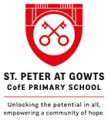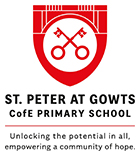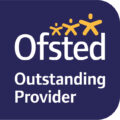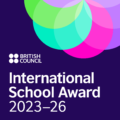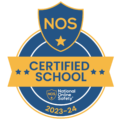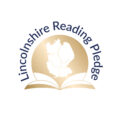School Development Plan
Quality of Education
- Curriculum Design- To continue the implementation of our bespoke ambitious curriculum, designed to give all pupils the knowledge, skills and cultural capital they need to be successful
- Key Issues – To be responsive to any identified gaps in provision across the curriculum
- Catch-up – To develop a blended curriculum with catch up elements of core learning blended with new learning, ensuring rapid catch up for pupils whilst maintaining principles of a rich and inspiring curriculum during the year.
- Writing – To continue a focus on writing through the Talk for Writing approach, ensuring children develop their age-appropriate skills, including at Greater Depth.
- Reading – To ensure a relentless focus on phonics and reading for all, especially PP, SEN and lowest 30% readers.
- Non-Core Learning – Continue to develop children’s skills and outcomes across the curriculum in the non-core areas
- Home Learning– Develop effective strategies to continue learning in the event of local lockdowns, using an online platform and paper resources successfully to engage with learners and parents to continue high quality provision
Behaviour and Attitudes
- Values – To continue the embedding of our Values curriculum across the school, resulting in Values based thoughts attitudes and actions from staff, children and the whole school community
- Learning Behaviours – To develop pupils’ stamina and motivation for learning within a covid-friendly classroom. Low-level disruption being minimised and bullying, harassment and violence are never tolerated.
- Behaviour at Unstructured times – To implement new procedures at lunch and playtimes to ensure positive rewards, consistency and effective conflict resolution as well as positive play within a covid-friendly playground.
- Courageous advocacy– To ensure pupils make a highly positive, tangible contribution to the life of the school and/or the wider community.
- Attendance – To monitor attendance rigorously through covid times to ensure children attend well when they can, they are punctual and PAs continue to fall.
- Inclusion – To ensure provision is in place and suitable for our 14 EHCP children, reducing the number of fixed term exclusions and reduced timetables through swift SEN identification, personalised support and agency engagement to ensure happy and settled learners.
Personal Development
- SMSC – To develop SMSC across the curriculum, including Collective Worship through innovative ideas and technology to ensure the 3 Is – Inspiration, Invitation and Inclusion.
- Wellbeing – To continue developing emotional wellbeing for children and adults within school through clear pathways of referral and support networks easily accessed for all.
- Information Sharing/remote support – Use new online procedures (CPOMs) to ensure a cohesive approach to CP and safeguarding, including VOC, to ensure that covid restrictions are not a barrier to identification of vulnerable children and families to support them.
- PSHE -To implement policy and procedure within PSHE, developing the use of the PSHE Association as a statutory subject, ensuring the school promotes equality of opportunity and diversity effectively, including the RSE.
- E-safety – as a National Online Safety School, continue to develop e-safety awareness to ensure our pupils are responsible internet users, displaying the same values and moral compass when communicating through social media and other platforms.
Leadership and Management
- Vision – To champion our clear and ambitious vision for providing high quality education through strong, shared values, policies and practice, especially during covid times.
- Subject Leadership Development – To empower subject leaders to be confident leading their subject across the school – developing pedagogical content knowledge in order to enhance the teaching of the curriculum and the appropriate use of assessment.
- Mental Wellbeing – To promote positive mental health within the school community on all levels. To continue reducing unnecessary workload and develop working practices that maximise efficiency and ‘make the boat go faster’ without adding to workload.
- Governance – To ensure those responsible for governance understand their role and carry this out effectively. Governors will ensure that the school has a clear vision and strategy, that resources are managed well and that leaders are held to account for the quality of education, health and safety and safeguarding.
- Safeguarding – To monitor safeguarding procedures and consider protocols to ensure the school utilises the most effective methods of identification and communication regarding safeguarding, implementing the CPOMS system. Early help to be used effectively to identify vulnerable families.
- Pupil Premium and SEND –To improve outcomes for PP and SEN children. Leaders and governors to focus on consistently improving outcomes for all pupils, especially for disadvantaged pupils, being uncompromising in their ambition. The impact of this will secure substantial improvement in progress for disadvantaged pupils in Maths and English. SEN processes to be heavily research based, including pre and post learning surgeries as well as structured programmes.
- Health and Safety – To develop effective systems and processes to ensure that health and safety is paramount, including assessing risk across school, developing covid safe practices, invacuation, evacuation and routine maintenance to ensure consistency and high standards in all areas.
- Site Development – Develop a long term strategy for improvement to St. Peter’s site, planning future projects and accessing funding pots to ensure that the site is fit for purpose to support effective teaching and learning.
Development of the Christian Character of the School
- Vision and Leadership – To widen church school leadership across the school and raise the profile of the SIAMS framework for all.
- Wisdom, Knowledge and Skills – To develop SMSC across the curriculum through innovative and inspirational approaches.
- Character Development – To develop a cohesive approach to charity and community work to encourage Courageous Advocacy, developing innovative ideas to ensure this happens in covid times.
- Community and Living Well Together – To develop mental wellbeing of both staff and children.
- Dignity and Respect – To embed policy and practice to ensure dignity and respect for all, reviewing RSE education and all elements of PSHE.
- Collective Worship – To develop the cohesion and impact of Collective Worship across the school through Covid times.
- RE teaching – To continue developing RE planning, delivery and recording, ensuring the same depth and quality of teaching is present when teaching all religions.
Effectiveness of the EYFS
- Data Summary – To ensure that the children have the personal, physical and social skills they need to succeed in the next stage of their education. Most children will achieve the early learning goals, particularly in mathematics and literacy (70% GLD)
- SEND and PP – To ensure the children demonstrate high standards of behaviour and attitudes through being deeply engaged and sustaining high levels of concentration. Children, including those from disadvantaged backgrounds do well compared to non-disadvantaged. Children with SEND and PP will achieve the best possible outcomes.
- Phonics, Literacy and Language – To ensure that the school’s approach to teaching early reading and synthetic phonics is systematic and ensures that all children learn to read words and simple sentences accurately by the end of Reception.
- Learning Behaviours – Through the development of an enabling environment, children to develop positive attitudes to learning through high levels of curiosity, concentration and enjoyment. Children to develop their resilience to setbacks and take pride in their achievements through highly positive rewards and high expectations of learning behaviours.
- Environment – To create an environment that supports the intent of an ambitious, coherently planned and sequenced curriculum. The resources are chosen to meet the children’s needs and promote learning.
- Parental Engagement- To provide increased communication for parents about their children’s progress, using Tapestry as an online platform to supply information to parents about supporting their child’s learning at home, including detail about the school’s method of teaching reading and how to help their children learn to read.
